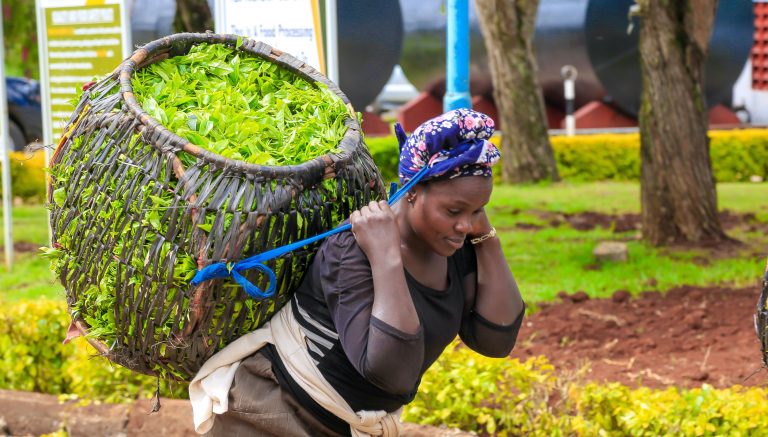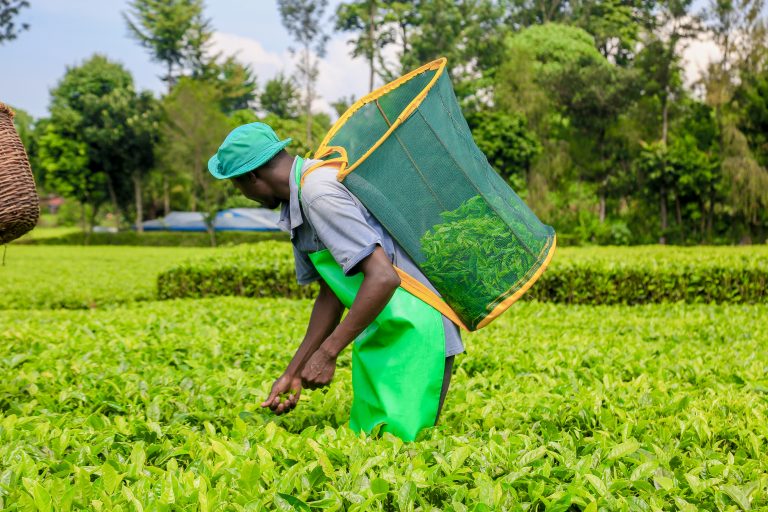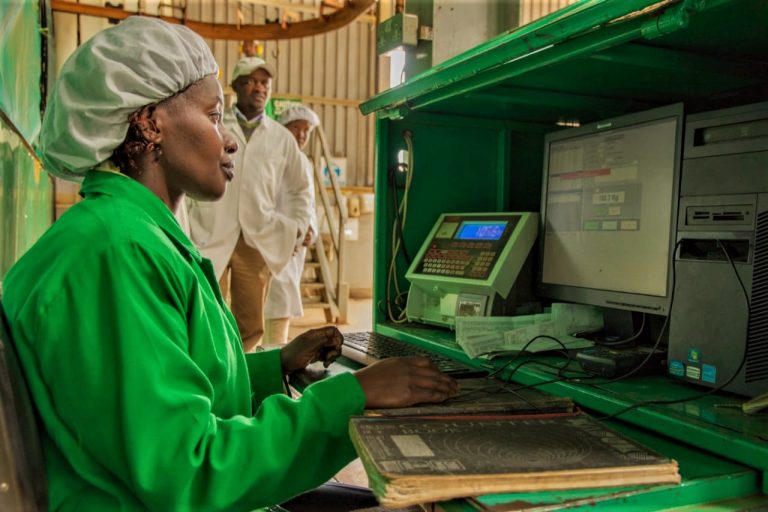By Kimuri Mwangi
The East African Tea Trade Association (EATTA) convened a national stakeholders forum to review the performance of the tea sector, celebrate milestones and address persistent challenges affecting the regional tea trade.
EATTA Managing Director George Omuga said the forum provided an opportunity to reflect on the significant progress they have made in the year 2025, showcasing their collective efforts in enhancing the tea sector and supporting members.
Omuga reported that the Mombasa Tea Auction continues to play a central role in global tea price discovery, noting that it “has remained relatively stable than the previous year in volumes offered and price discovery.” He added that auction absorption stood at 84%, up from 51% over the same period in 2024. KTDA East of Rift Valley and Rwanda recorded the highest average prices to date at $2.98 and $2.92, respectively.
According to Omuga, the volume of tea sold through the auction so far stands at 410 million kilogrammes, down from 445 million kilogrammes last year due to a reduction of older tea stocks. He emphasised that the quality of tea offered in the auction remains a major price-determination factor with other conditions remaining the same.

The MD outlined a series of advocacy successes, saying, “We effectively stopped the KSh 375 cleaning charge on tea exports and collaborated with the Kenya Revenue Authority to clarify tax issues impacting our members.” He added that lobbying efforts helped eliminate taxes on tea packaging materials and contributed to reduced Kenya Ports Authority charges that had hindered exports.
Omuga highlighted ongoing collaborations with agencies including KENTRADE, the Regulatory Authority, the Maritime Authority and the Shippers’ Council, alongside the onboarding of DTB as a new settlement bank. “Our community is growing, as evidenced by the 32 new registrations this year,” he said.
He noted that EATTA achieved a 98% success rate in addressing member issues, supported by increased sponsorships and participation in key events such as the Members Forum, Golf Tournament and the Orthodox Expo. The association also strengthened regional and international ties through engagements with the Uganda Tea Association and Sri Lankan stakeholders, and by mediating the release of tea stuck at Port Sudan.
Omuga further pointed to market expansion initiatives: “Our collaboration with the Government aimed at reopening and expanding export markets through a comprehensive Export Market Strategy, targeting regions such as China, Iran, CIS, Europe, and Morocco.”
Other achievements included the launch of the Orthodox Tea Auction, the revival of Golf Day, and joint efforts with regulators, producers and KTDA directors to address audit complexities, market outlooks, stock accumulation and reserve pricing.
“Our meetings with the Cabinet Secretary for Agriculture and the Senate Committee focused on addressing challenges in the tea sector, including taxation and business processes,” Omuga said. He urged continued unity: “Together and united, we can overcome challenges and seize new opportunities.”
EATTA Chairman Abdi Hussein echoed the focus on resilience and opportunity, saying, “Today, I am thrilled to discuss the resilient tea sector in our membership countries, a pillar of our economies, as we explore its developments, challenges, opportunities, and the future outlook for tea trade across Africa.”
Hussein noted that Africa’s tea industry has made remarkable advancements, with Kenya maintaining its position as the world’s leading exporter of black tea. He highlighted the role of precision agriculture, sustainable practices, and improved logistics in enhancing productivity and market access. The sector, he said, continues to drive “socio-economic growth, rural development, and poverty alleviation.”

He warned, however, that climate change poses significant risks while legislative hurdles, fluctuating global prices and rising production costs remain pressing concerns, especially for smallholders. He also pointed to growing competition and shifting consumer preferences.
Hussein said these challenges also present new possibilities. “The rising global demand for high-quality and specialty teas aligns well with Africa’s unique terroir and commitment to sustainability,” he noted, adding that value addition, including flavoured and ready-to-drink teas, could attract younger consumers and boost farmer incomes.
He further underscored the potential of the African Continental Free Trade Area (AfCFTA), saying it offers significant potential for expanding intra-African trade and reducing reliance on traditional markets.
Looking ahead, Hussein said the outlook remains positive. “By embracing innovation and sustainable practices while prioritizing the welfare of farmers, we can build a resilient industry,” he said. He reaffirmed EATTA’s commitment to advocating for common sustainability standards and strengthening partnerships with international buyers and emerging markets.
“In conclusion, we stand at a pivotal moment,” Hussein said. “With concerted efforts to overcome challenges and seize opportunities, we can secure a prosperous future for our tea trade, reinforcing its role as a significant driver of economic growth in Africa.”





